Every college football season shines a spotlight on new head coaches and new quarterbacks, but the impact of new coordinators should never be understated. The right playcaller can quickly change the trajectory of a program.
The crop of new coordinators in 2019 is particularly intriguing. One could take an annual playoff participant to the championship stage. Some could elevate underachieving programs into the playoff mix. Others will have a direct impact on the head coaches who hired them.
The following list doesn't include every new coordinator in the Power 5. From talking to coaches and other industry sources, I identified the coordinators who should make the biggest impacts at their new programs this fall. Note: While many programs have co-coordinators, this list features primary playcallers only.
Let's lead off with the most important coordinator hire for a CFP contender in several years.
Alex Grinch, Oklahoma

Position: Defensive coordinator/safeties coach
Previous job: Co-defensive coordinator/safeties coach, Ohio State
There are two undeniable truths about OU's program under Lincoln Riley. The first is that the offense will be nationally elite, regardless of the quarterback. The second is that the once-decorated Sooners' defense has lost its edge.
Oklahoma couldn't get beyond the CFP semifinals the past two years, despite record-setting, Heisman Trophy-winning quarterbacks in Baker Mayfield and Kyler Murray, respectively, who both went No. 1 overall in the NFL draft. The Sooners allowed a combined 99 points in losses to Georgia and Alabama and a smidge under 8 yards per play. OU finished 58th in defensive efficiency in 2017 -- the other three playoff participants occupied the top three spots -- and tumbled to 92nd last season. Playing in the Big 12 impacts the numbers, but the Sooners simply haven't been good enough.
"Their personnel is down," a Big 12 offensive assistant said of Oklahoma. "If you're 50th in the country in defense, they'll think you're a genius."
Grinch enters a situation that couldn't get much worse, but he faces incredible pressure. His work with the defense could mean the difference between a run of entertaining offense and Big 12 titles and one that includes the school's first national title since 2000.
"No one made me come here," Grinch told ESPN. "I had a job, and I signed up for the expectations, and they're very, very high. So embrace it and work every day to achieve it."
Trevor Matich visits Norman, Oklahoma to learn about the Sooners' new emphasis on defense.
Grinch comes to OU after an odd year in Columbus, where the Buckeyes' defense regressed, especially in the back end. But Ohio State's problems went beyond Grinch, whose work as Washington State's defensive coordinator (2015-17) is a better gauge of his ability.
The Cougars' defense made huge strides, going from 99th in yards allowed in 2014 (the year before Grinch arrived) to 16th in Grinch's final season. There were even bigger spikes in WSU's pass defense and turnovers forced. Grinch engineered it all while complementing Mike Leach's Air Raid offense, the system in which Riley cut his teeth and one that isn't friendly to defensive coordinators on either sideline.
"He's been one of those coordinators where you have to play good defense while they're throwing the ball," a Big 12 coach said. "He's been with Leach, so he's not going to complain about it. He's going to know what it is and go do it, so that's half the battle."
The biggest key to having success alongside offenses like Leach's and Riley's, according to Grinch, is not using them as an excuse.
"As long as you have that over your head and are willing to grab onto it like a safety net," Grinch said, "it's very difficult to establish any standards for yourself on your side of the ball."
Grinch's Washington State experience also should help him with Oklahoma's personnel. Coaches who know Grinch say the talent he inherited with the Sooners surprised him, especially coming from Ohio State. Riley defended OU's roster at Big 12 media days, saying, "You're not going to take the job if you don't think there's good players there. Trust me, he had his pick." But Riley noted that Grinch's scheme produces effective players "even if you don't have an unbelievable first-round talent at a position."
Washington State never dominates in recruiting but had All-American lineman Hercules Mata'afa and other standouts during Grinch's tenure.
Grinch is a strong tactician, using a hybrid 3-4 base, and has strong coaching roots as the nephew of former Missouri coach Gary Pinkel and an alum of Division III coaching factory Mount Union. He noted the alignment he felt with Riley as a big draw to OU, saying, "Coach Riley wanted me to not just call defensive plays but run the defense that I believe in."
But Grinch's biggest impact at OU could be psychological. Linebacker Kenneth Murray said Grinch has instilled a "dog mentality" in the Sooners' defense.
"We're going to go out there and try to make the offense play on our terms," Murray said.
Eliminating excuses has been Grinch's focus from his first meeting with the defense. He remains respectful of OU's recent success but refuses to "hang our hat" on outscoring opponents every week.
"There always can be an excuse. It's low-hanging fruit," he said. "The coaches can say the players aren't any good, and the players can say the coaches aren't any good. Who cares? My point to them is even if we're right, where does that leave us? You're only judged by results. Regardless of what your excuse might be, it doesn't change the result."
Josh Gattis, Michigan
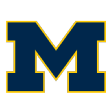
Position: Offensive coordinator
Previous job: Co-offensive coordinator/wide receivers coach, Alabama
The circumstances surrounding Gattis at Michigan are truly fascinating. After one year with Nick Saban at Alabama, he left to become Michigan's offensive playcaller, a role he hasn't had despite a résumé that includes stops at Penn State and Vanderbilt with James Franklin. The 35-year-old is expected to maximize the run-pass option skills of senior quarterback Shea Patterson, as well as a receiving corps that, if healthy, could be among the Big Ten's best.
But the question many coaches are asking is: Will Gattis actually get that chance? Michigan's playcalling arrangement has been crowded and, at times, confusing, but coach Jim Harbaugh's fingerprints are usually all over the actual on-field product.
"Apparently Harbaugh let [Gattis] do what he wanted him to do this spring," a Big Ten defensive coordinator said, "but will he let that hold up?"
Gattis is a career receivers coach who has mentored stars such as Western Michigan's Jordan White, Vanderbilt's Jordan Mathews, Penn State's DaeSean Hamilton and a productive Alabama crew led by Jerry Jeudy, the 2018 Biletnikoff Award winner. He inherits a good group at Michigan that includes Nico Collins and Donovan Peoples-Jones. Michigan is shockingly inexperienced at running back, so Gattis' offense should be pass-heavy, at least early on.
Graham Harrell, USC

Position: Offensive coordinator/quarterbacks coach
Previous job: Offensive coordinator/quarterbacks coach, North Texas
When USC retained Clay Helton after a 5-7 season in 2018, it did so with the promise of hiring a big-deal offensive coordinator. The Trojans delivered with Kliff Kingsbury, but then the Arizona Cardinals swooped in and plucked Kingsbury as their new head coach. Helton's hope is that Harrell will deliver similar results with quarterback JT Daniels and a talented but underachieving unit. If not, both Helton and Harrell likely will be looking for new jobs in 2020.
Like Kingsbury, Harrell starred at quarterback for Texas Tech, spent time in the NFL and made a fast rise in coaching. Just five years after beginning his coaching career as Leach's outside receivers coach at Washington State, Harrell occupies one of the most coveted coordinator spots in the sport. The 34-year-old comes to USC after three strong seasons with Seth Littrell at North Texas, where Mason Fine blossomed into one of the top Group of 5 quarterbacks.
USC made a schematic shift by hiring Kingsbury and then Harrell, both rooted in the Leach/Air Raid offense. Harrell must maximize a unit loaded with wide receiver talent -- Michael Pittman Jr., Tyler Vaughns, Amon-Ra St. Brown and others -- and a young quarterback looking for consistency.
"They've got plenty of talent to do that stuff. It's just not the tradition of SC," a Pac-12 defensive coordinator said. "Graham will get them going. They've got all kinds of options. If they can get O-line to block that stuff, they'll be pretty good."
Greg Mattison, Ohio State
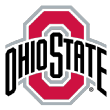
Position: Defensive coordinator
Previous job: Defensive line coach, Michigan
Ryan Day's first major hire as Ohio State coach made waves, as he plucked Mattison (and linebackers coach Al Washington) from the staff of Ohio State's archrival. The 69-year-old Mattison has held coordinator jobs at four colleges and an NFL team, including two stints at Michigan and a five-year run at Notre Dame. Along with co-coordinator Jeff Hafley, Mattison will try to restore the Buckeyes' defense after a season of busted plays and inconsistency. Mattison's background is with the defensive line, an area where Michigan shined, but his work with the linebackers could be most impactful at Ohio State this fall. The linebacker spot at Ohio State should never look as ordinary as it did last season. Ohio State enters the season with more questions than usual, but Mattison can provide relief if he gets the defense to perform to its talent level again.
Steve Sarkisian, Alabama
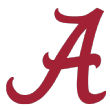
Position: Offensive coordinator/quarterbacks coach
Previous job: Offensive coordinator, Atlanta Falcons
The shuffling on Saban's staff remains a story, and while Sarkisian is part of the change, he also has familiarity with Alabama after serving as an analyst (and offensive coordinator for the national title game) in 2016. He inherits an offense featuring Heisman Trophy runner-up Tua Tagovailoa at quarterback, Jeudy at wide receiver and other potential standouts. While others on this list were hired to elevate units, Sarkisian is charged with maintaining the production Alabama showed in 2018, when the Tide offense trailed only Oklahoma in overall efficiency, yards per play, QBR and other categories.
Dan Enos, Miami
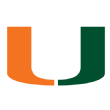
Position: Offensive coordinator/quarterbacks coach
Previous job: Associate head coach/quarterbacks coach, Alabama
Sarkisian is back in part because Enos left Tuscaloosa for a fresh start with Manny Diaz. Enos has long been considered a gifted developer of quarterbacks, and he helped both Tagovailoa and Jalen Hurts last season. He faces a different challenge with the Hurricanes, whose struggles at quarterback stood out toward the end of coach Mark Richt's tenure. If Enos can manage the quarterback room like he did at Alabama and maximize production from a talented group of playmakers, Miami should contend again in the ACC Coastal. It's hard to see Miami ever struggling significantly on defense under Diaz, but to truly challenge Clemson, the Hurricanes will need more from their offense.
Andy Avalos, Oregon

Position: Defensive coordinator
Previous job: Defensive coordinator/linebackers coach, Boise State
There's a lot of hype around Oregon's offense, with quarterback Justin Herbert returning and a very talented line. But the Ducks won't win their first Pac-12 title since 2014 without progress from a defense that returns most of its secondary and other key players, such as linebacker Troy Dye. Jim Leavitt dramatically upgraded the defense after arriving in 2017, and Avalos must continue the trajectory as Oregon adds standout recruits such as end Kayvon Thibodeaux (ESPN's top-ranked overall player) and Mykael Wright (No. 25 nationally). Avalos coordinated the Mountain West's top defense the past three seasons, generating both pressure (39 sacks) and takeaways (24) in 2018. He's a good fit for an Oregon team eyeing the next step.
Kendal Briles, Florida State

Position: Offensive coordinator/quarterbacks coach
Previous job: Offensive coordinator/quarterbacks coach, Houston
Briles isn't in the exact same position as Harrell at USC, but both are being brought in by embattled, offensive-minded coaches to boost underperforming units. Although Briles is a controversial hire, his on-field success at Baylor, Florida Atlantic and Houston -- all top-10 offenses -- can't be questioned. Briles will work directly with James Blackman, the likely starter at quarterback, as well as Alex Hornibrook, a graduate transfer who started two-and-a-half seasons at Wisconsin. FSU's offensive line is a glaring problem, and Briles brought longtime colleague Randy Clements with him to fix it. One way or another, the Briles hire will shape head coach Willie Taggart's tenure at FSU.
Jay Bateman, North Carolina
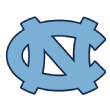
Position: Co-defensive coordinator/safeties coach
Previous job: Defensive coordinator, Army
New UNC coach Mack Brown made one of the best coordinator hires of the past cycle in Bateman. A Broyles Award finalist in 2018, Bateman produced two top-10 defenses at Army and helped the program to 29 wins the past three seasons. Bateman takes over a North Carolina defense that slipped to 95th nationally in efficiency and 91st in expected points added. Bateman's defense will be on the field much more at UNC than it was at Army, but he will adjust, and he inherits gifted players such as nose tackle Jason Strowbridge.
Mike MacIntyre, Ole Miss
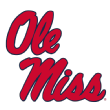
Position: Defensive coordinator
Previous job: Head coach, Colorado
Ole Miss hired two established coaches to lead its offense and defense in 2019. While offensive coordinator Rich Rodriguez is a significant addition, MacIntyre faces a much tougher task on defense and could make a bigger impact. The 2016 AP Coach of the Year takes over a defense that finished near the bottom of the FBS in yards allowed, points allowed, interceptions and quarterback pressure. MacIntyre hasn't been a defensive coordinator since 2009 at Duke, but he helped transform Colorado's defense. He boasts plenty of experience at both the college and NFL levels that should serve the Rebels well as they rebuild.
Jim Chaney, Tennessee

Position: Offensive coordinator
Previous job: Offensive coordinator/tight ends coach, Georgia
Tennessee's coordinator search dragged on far too long but ended with a respected playcaller in Chaney, who oversaw a productive Georgia offense the past three seasons. Chaney begins his second coordinator stint at Tennessee (2009-12) and his seventh overall. He's still regarded as a top quarterback developer, and his work with junior Jarrett Guarantano will be fascinating. Tennessee is deep at wide receiver and returns Ty Chandler and others at running back but must be more consistent in SEC play after eclipsing 24 points just twice last season.
Andy Ludwig, Utah

Position: Offensive coordinator/quarterbacks coach
Previous job: Offensive coordinator/running backs and tight ends coach, Vanderbilt
Kyle Whittingham has made Utah one of the nation's most consistent programs, except in one area: offensive playcallers. Utah will have its ninth new voice in the past 11 seasons. The shuffling began when Ludwig departed for Cal after Utah went 13-0 and finished No. 2 nationally in 2008. Ludwig knows the program and has held coordinator posts at seven FBS programs. Utah enters 2019 as the Pac-12 favorite, mainly because of a ferocious defense packed with future NFL players. But the offense returns all-senior backfield Tyler Huntley and Zack Moss, wideout Britain Covey and other experienced players. If Ludwig gets the most out of the group, Utah could win its first Pac-12 title and perhaps become a playoff dark horse.
Brad Salem, Michigan State

Position: Offensive coordinator/running backs coach
Previous job: Quarterbacks coach, Michigan State
I avoided including coordinator promotions, though there are interesting ones, such as at Georgia, where James Coley (offense) and Dan Lanning (defense) will call plays. But Michigan State's situation is unique. The Spartans return arguably the best defense of the Mark Dantonio era but must upgrade an offense that fell apart late last fall, mustering just 32 points in the final four games. Rather than overhauling his staff, Dantonio shifted responsibilities and moved Salem into the coordinator role. Salem has been a Division II head coach and coordinator and has coached both quarterbacks and running backs during his decade at MSU. His ability to get the offense on track again could be the difference between a Big Ten title push and another middling season. "Things will look different," Dantonio told me in July. "With that being said, why we shuffled the staff as opposed to making other changes is because of the success that we have had."
